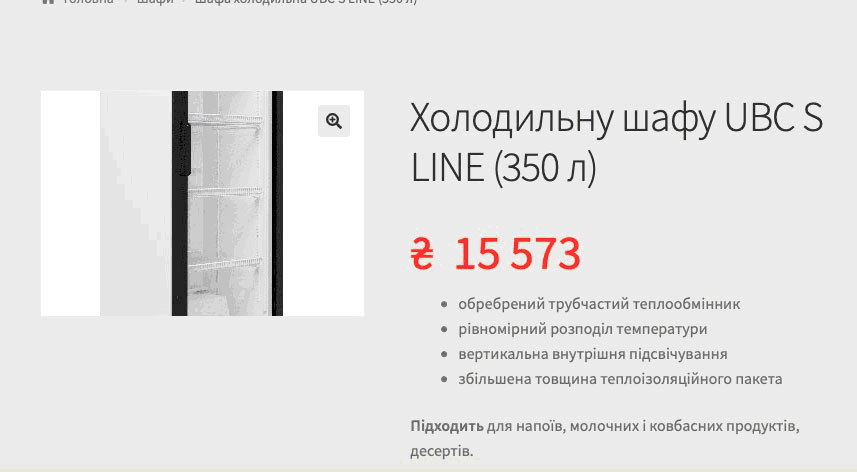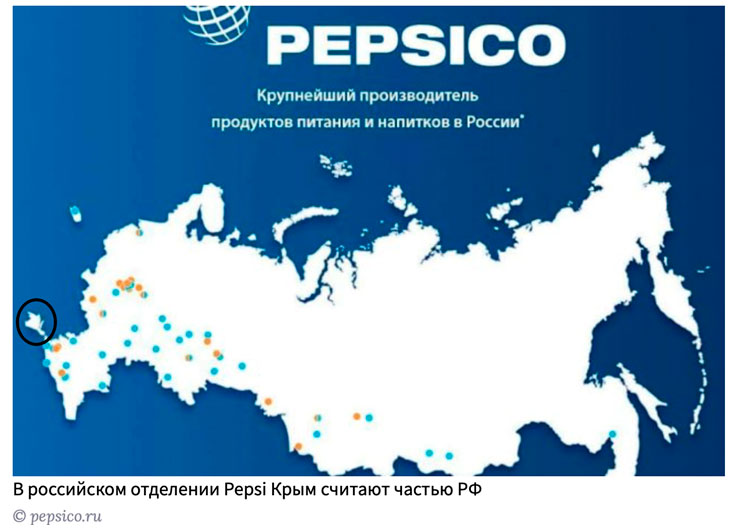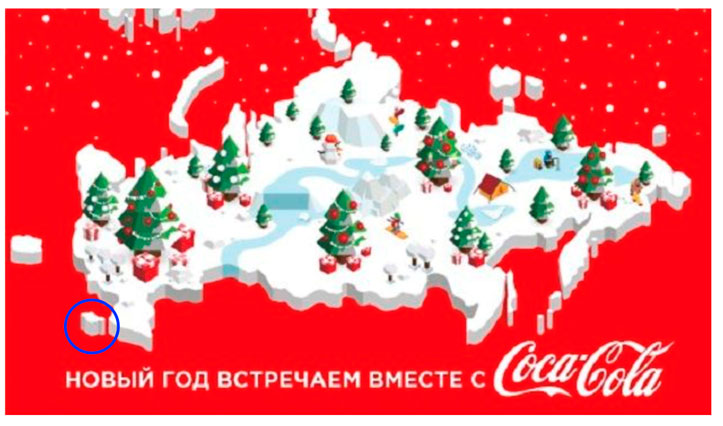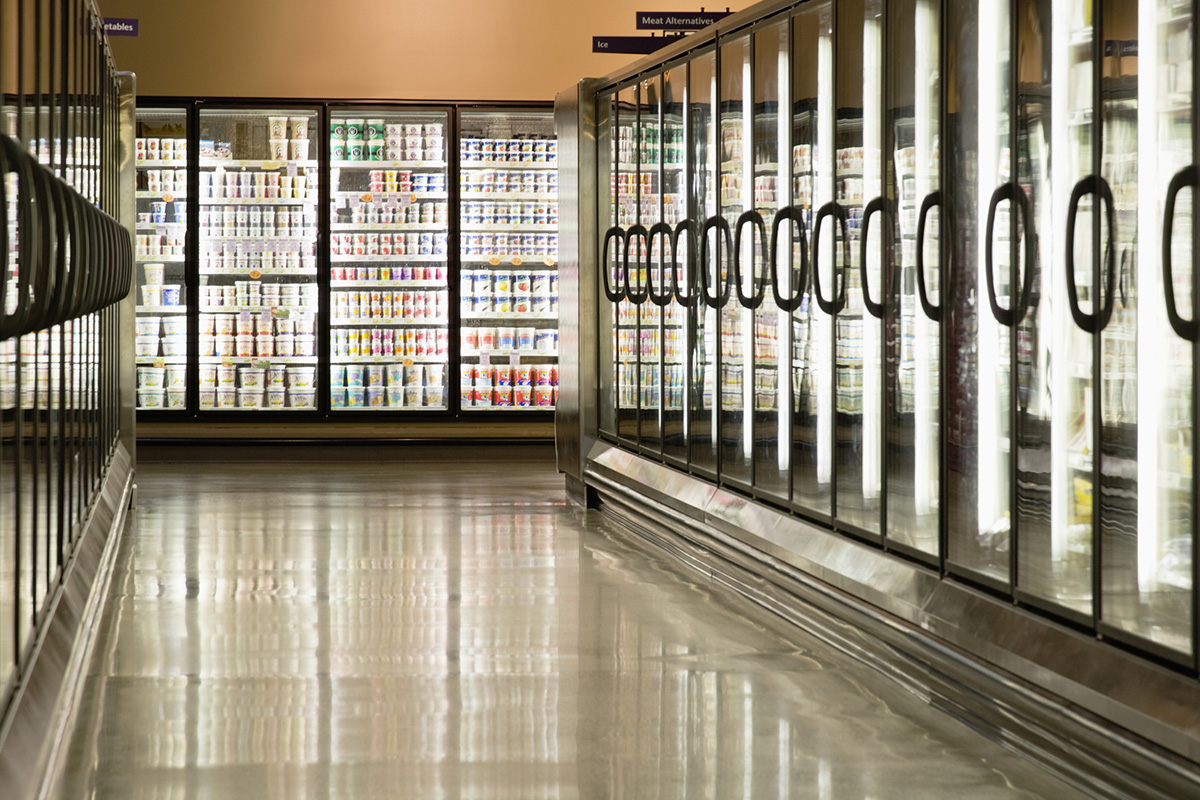When you buy a can of Heineken beer in the summer, you feel a bit like James Bond. It is unlikely that you think about the refrigerator that’s been used or the fact that it’s actually breaking the EU and Ukraine’s legislature. You probably have no idea that Coca-Cola, Pepsi, Carlsberg, Heineken and AbInBev are being stored in Ukraine and other post-Soviet countries in UBC Group refrigerators that are imported from the occupied Crimea despite the ban. Read more in our material.
Starting from January 16 of 2016, Ukraine has a government decree on banning trade with Crimea.
The decree introduced a ban on importing and exporting goods from and to Crimea. The exceptions include personal belongings, socially valuable food products and humanitarian aid.
The EU introduced a similar ban two years prior to Ukraine, on July 30 of 2014. At that time, EU banned the import of Crimean goods that do not have a Ukrainian license. Such measures apply to the EU citizens and companies registered in the EU. The former President of the United States Barack Obama banned import from Crimea in December 2014.
Over the years, we witnessed a couple of major scandals regarding trade with Crimea. For instance, supplying two Siemens gas turbine units or the Italian winemaking equipment for “Zolota Balka”. Yuriy Kosiuk’s “Nasha Raba”, and thus President Petro Poroshenko, has also gotten involved in scandals for supplying chicken through the Krasnoyarsk region.
And it seems like the reverse process is happening just as Papanov described in “The Diamond Arm”, “without noise and dust”. In any case, that is what UBC Group’s work experience seems to suggest. The company presents itself as one of the global leaders in refrigerator production in Eastern Europe. The division of “UBC Cool” group operates 3 factories:
-The main “Uksnab” plant, built in early 2000s in Krasnoperekopsk, Crimea. It is the first and largest factory.
-The second one is located in Derhachi, Kharkiv Oblast. After the annexation of Crimea, the company reequipped it and transferred a part of Crimean equipment to this factory. It, however, could not replace the Crimean factory.
-In 2018, the company opened a new factory in Vinnytsia in order to diversify the supplies to different markets.
At the same time, Evheniy Varva, one of UBC Group’s executive directors, told “Sprava” the company has no intention of closing the Crimean factory.
If they don’t close the plant, it means it is profitable. Obviously, Russians do not perceive Crimea as Ukraine, buying goods from the Krasnoperekopsk factory. UBC Group, on the other hand, prides itself on having international companies as clients rather than on a Russian market. The international companies that buy Crimean equipment bypassing the law.
One month ago, a journalist and former prosecutor Serhiy Ivanov wrote an article on the ways the company bypasses the law to keep its European market.
The material suggests that the Russian LLC “Cooling Equipment Trading House”, located in Tavolzhanka, Belgorod Oblast, supplies the UBC Cool equipment to Ukraine and potentially the EU.
Ivanov provides the evidence of the fact that there is only a transshipment warehouse in Tavolzhanka, made to conceal the actual supply from Crimea.
According to the official data, the Russian enterprise doesn’t even have aClassification of Types of Economic Activity for production.
The journalist published some excerpts from the customs base, according to which 1032 refrigerators with a Pepsi logo were imported to Ukraine from Russia (read: Crimea) only in 2017. The minimum online price for such a refrigerator is 15,5 thousand UAH. That means the June purchase cost the global company 16 million UAH or 600 thousand dollars.

In 2017, 766 750 liters refrigerators were purchased for the “Lvivske” beer. One could find the same refrigerators online for 26 thousand UAH. The whole purchase cost 20,6 million UAH.
“Lvivske” is a part of Carlsberg Ukraine, which is a branch of the Danish Carlsberg Group, one of the leading brewing companies in the world, selling goods in over 150 countries. In Ukraine, the company owns a 32,5% share of the beer market.
In January 2017, UBC also supplied 53 refrigerators with a Carlsberg logo, which cost over a million UAH.
According to the same customs base, Carlsberg bought another 332 refrigerators in February.
Moreover, some ice-cream producers bought refrigerators using the same scheme in 2018: Ivano-Frankivsk company “Lasunchik” (112 refrigerators), “Hercules”, Algida and Wall's trademarks (belonging to the international Unilever), “Kārums” Latvian dairy products of the Rīgas Piensaimnieks, and beer producer ABInBev (Beck's).
These are only the refrigerators that arrived to Ukraine.
However, there are also huge Russian and post-Soviet markets.
According to the documents our editorial board was able to study, in 2017-2019 the Russian office of the Belgian ABInBev bought 15 thousand refrigerators from the Krasnoperekopsk factory, Carlsberg – 23 thousand, Heineken – 11,5 thousand, and Pepsico – 7,5 thousand.
Carlsberg also bought 3 thousand refrigerators for its Belorussian office, while Pepsico bought 1 thousand of Crimean goods in the same country.
In Kazakhstan Carlsberg bought 15,500 of Crimean refrigerators, while Pepsico purchased 2,000. The Turkish beer producer Efes bought another 4,000.
With the average refrigerator cost of 400 EUR, the global companies paid 2 million EUR for every 5,000 goods.
It is logical that paying over 9 million EUR, Russian Carlsberg should have asked where and how the equipment is produced in Tavolzhanka. Is there even a factory? It looks rather dubious from the satellite. They have to check their suppliers, don’t they?
Usually, the global suppliers, who buy that kind of equipment for years, know where the factories are located and where the equipment is produced. Thus, there is a suspicion that the companies know about the factory in Crimea as the main plant of the company.
The UBC management, as we remember, admitted that the Crimean factory keeps working for the post-Soviet market after the Vynnitsia factory opened.
So what do we have here? On one hand, the global society condemns Russia for annexing Crimea, but on the other hand, they continue buying the Crimean equipment despite their very own sanctions.
Do you remember how Coca-Cola and Pepsico showed Crimea as a part of Russia in 2016? The companies then apologized and deleted the maps. It was, however, more than just a gap in geographical knowledge.


It is interesting what would happen if the prosecutor’s office established that the companies purchased goods that fall under sanctions. Some would say that the companies had no choice, as UBC is a monopoly in this market. Ihor Humenny truly worked hard to get global brands as clients. He even started a production of branded umbrellas for the company’s needs in the early 2000s.
It still doesn’t mean absence of the alternatives. Before the war, UBC had a serious competitor – Ukrainian company “Intertekhnika” from Donetsk, which was owned by “Nord”. The war destroyed this business.
There are still other suppliers, such as “Modern-Expo” from Lutsk, “Ross” from Kharkiv, Juka from Zhytomyr created together with Polish colleagues.
In addition, there are international companies like Metalfrio and Ugur, with factories in Turkey.
The global companies could even purchase goods from other Russian producers, such as “Frigorex” and “Polair”. Leave alone the Chinese.
All these option could work if one does not make a deal with the conscience.
As one can see, today we have information about violations in Ukraine and other CIS countries. At the same time, in the nearest future we could receive data about the EU violations, as the Crimean equipment was supplied there as well.
The indirect proof of this is UBC annually spending huge amounts of money on international exhibitions and promotion of its goods.

We can only hope that the according authorities will conduct an investigation and implement required measures.
We intend to appeal to the European offices of the aforementioned producers with a request to comment on facts of them purchasing equipment from the Crimean factory. We will surely inform you of their answers. It is already obvious, however, that while the EU countries declare certain things, the large companies work with the banned partners. It looks like they do not care about the fact that the taxes they pay go to purchasing bullets to kill Ukrainian soldiers.
In the past 5 war years we learned to look at the country of production in supermarkets. But we never thought to look behind the refrigerator’s door.
While some cannot visit their parents in Crimea, others have no problem making billions, thereby leveling the status of war and the lives of soldiers defending Ukraine.


